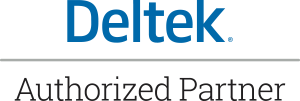Discovering the Key Attributes of Monograph Accountancy for Successful Accounting Professionals

Defining Monograph Accounting: A Comprehensive Review
Monograph accountancy stands for a specific method within the broader area of economic reporting. This method emphasizes the organized and in-depth documentation of monetary transactions and their implications. Unlike typical accountancy, Monograph audit is usually customized to unique scenarios or particular markets, providing a concentrated structure for analysis and coverage. It allows accounting professionals to dig deeper into particular locations, providing a comprehensive sight that lines up very closely with business goals.
An essential feature of Monograph audit is its adaptability; it can integrate various accountancy standards and techniques as needed. This versatility allows accountants to create records that are not just exact however additionally relevant to stakeholders. The method frequently entails substantial research and evaluation of economic information, making certain that every aspect is completely recognized and documented. Therefore, Monograph accounting offers as an important tool for accounting professionals aiming to offer insightful financial analyses customized to certain contexts.
The Relevance of Quality and Accuracy in Financial Reporting

Unclear or imprecise reporting can bring about misdirected methods, eroded count on among financiers, and regulatory examination. As a result, accountants must prioritize accuracy in their job, ensuring that figures are thoroughly verified and financial stories are systematic. This not only fosters transparency however additionally boosts the total trustworthiness of the company.
Inevitably, clarity and precision in monetary coverage are essential for maintaining stakeholder confidence and advertising lasting service development. Accounting professionals play an essential role in maintaining these standards, making their knowledge important in browsing the intricacies of monetary data.
Improving Decision-Making Procedures Via Monograph Audit
Efficiency in decision-making procedures is substantially enhanced with the concepts of Monograph audit. By consolidating thorough economic information into a particular, systematic framework, accountants can rapidly access vital information needed for informed options. This method lowers the moment invested in data retrieval and interpretation, permitting a more dexterous feedback to economic circumstances.
Additionally, Monograph accountancy emphasizes clear categorization and thoughtful company of monetary deals, which lessens mistakes and miscommunication. When accountants use these concepts, they can present economic insights in a structured fashion, helping with conversations amongst stakeholders.
Furthermore, the standardization integral in Monograph accounting makes it possible for smooth comparisons throughout different durations or departments, even more aiding in calculated planning. This structured strategy not only optimizes the internal processes of accounting experts yet also boosts the overall organizational agility, equipping services to adapt to changing market conditions promptly.
Trick Benefits for Accountants and Their Clients
While taking on Monograph audit might call for a preliminary financial investment of time and resources, the long-lasting advantages for both accounting professionals and their customers are considerable. This bookkeeping technique advertises boosted accuracy and transparency, permitting accounting professionals to preserve more clear economic documents. By settling info right into a single story, customers acquire better insights into their economic health and wellness, helping with educated decision-making.
Monograph bookkeeping promotes stronger customer partnerships through boosted interaction. Accountants can present economic information in a much more digestible format, making it less complicated for clients to comprehend complicated information. This clarity not only develops trust however additionally motivates aggressive financial monitoring
In addition, the streamlined processes related to Monograph accounting reduce the possibility of mistakes, which can save both money and time. Eventually, the integration of this approach brings about more effective procedures, allowing accounting professionals to give better service while equipping customers with boosted monetary understanding and control.
Practical Applications of Monograph Accountancy in Various Industries
In what ways can monograph accountancy change numerous sectors? By offering a concentrated and extensive approach to financial coverage, Monograph accounting improves clarity and precision throughout varied industries. In medical care, for example, it helps with the accurate monitoring of patient Resources expenses and resource allowance, inevitably boosting financial monitoring. The manufacturing industry take advantage of its organized analysis of production prices, enabling for far better pricing approaches and productivity analyses.
In the retail sector, Monograph bookkeeping assists in inventory administration and sales projecting, aiding services enhance supply levels and reduce waste. Moreover, in the nonprofit sector, it assists in transparent reporting of give funding and resource application, promoting trust among stakeholders. Overall, Monograph accounting's customized approaches allow organizations to attain monetary transparency and functional efficiency, making it an important device throughout numerous industries. Its versatility makes certain that businesses can meet certain audit needs while maintaining conformity with laws.
Regularly Asked Questions
What Software application Is Best for Executing Monograph Accountancy?
The best software application for implementing Monograph accounting includes Xero, and Sage. important source These platforms provide extensive functions tailored for effective tracking, reporting, and management of financial information, facilitating streamlined audit procedures for experts.
Just How Does Monograph Accounting Differ From Standard Bookkeeping Methods?
Monograph accountancy concentrates on individual tasks or clients, highlighting detailed monitoring and reporting for certain entities, while standard audit accumulations information across all entities, prioritizing overall economic health and wellness instead of project-specific insights and efficiency.
What Are Common Obstacles Accounting Professionals Confront With Monograph Accounting?
Accountants commonly experience difficulties with Monograph audit, consisting of intricacy in economic coverage, assimilation with existing systems, making sure conformity with guidelines, adjusting to distinct client demands, and handling the thorough documents needed for exact evaluations.
Exist Particular Regulations Governing Monograph Accountancy Practices?
Yes, specific laws frequently regulate Monograph accountancy techniques, including adherence to nationwide bookkeeping criteria, compliance with tax policies, and industry-specific standards. Accounting professionals have to stay educated to ensure their methods line up with these developed structures.
Just How Can Accountants Remain Updated on Monograph Accounting Trends?
Accountants can remain upgraded on Monograph audit trends by subscribing to industry publications, attending pertinent workshops and conferences, reference joining specialist organizations, and engaging with on-line discussion forums dedicated to accounting criteria and ideal methods. (Monograph Accounting)
Monograph audit presents an unique structure that boosts economic coverage for accounting professionals. Unlike traditional bookkeeping, Monograph accounting is typically customized to special situations or particular markets, providing a focused structure for evaluation and reporting. A key feature of Monograph audit is its adaptability; it can include various bookkeeping criteria and practices as needed. By supplying a focused and detailed strategy to financial coverage, Monograph audit enhances quality and accuracy throughout varied sectors. Yes, particular laws frequently regulate Monograph audit methods, consisting of adherence to nationwide accounting standards, compliance with tax obligation guidelines, and industry-specific standards.